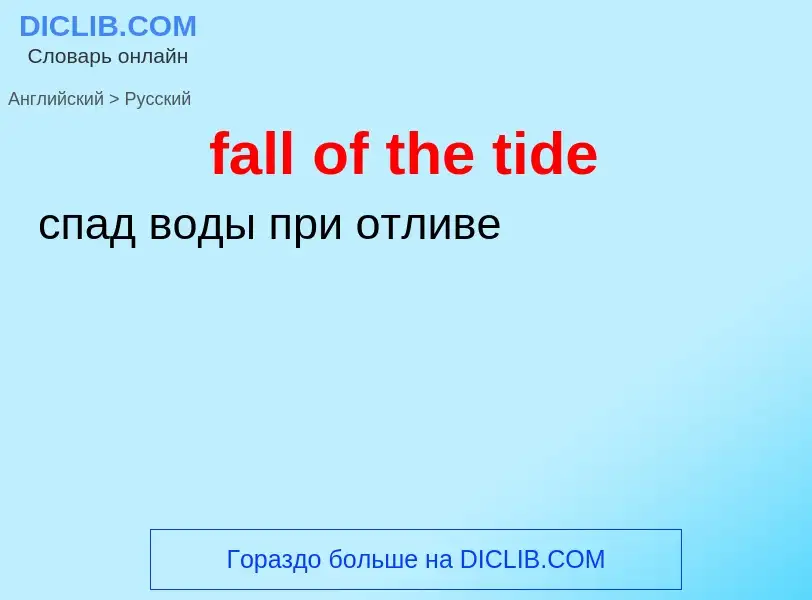Traducción y análisis de palabras por inteligencia artificial ChatGPT
En esta página puede obtener un análisis detallado de una palabra o frase, producido utilizando la mejor tecnología de inteligencia artificial hasta la fecha:
- cómo se usa la palabra
- frecuencia de uso
- se utiliza con más frecuencia en el habla oral o escrita
- opciones de traducción
- ejemplos de uso (varias frases con traducción)
- etimología
fall of the tide - traducción al ruso
библейское выражение
грехопадение
Definición
Wikipedia

The fall of man, the fall of Adam, or simply the Fall, is a term used in Christianity to describe the transition of the first man and woman from a state of innocent obedience to God to a state of guilty disobedience. The doctrine of the Fall comes from a biblical interpretation of Genesis, chapters 1–3. At first, Adam and Eve lived with God in the Garden of Eden, but the serpent tempted them into eating the fruit from the tree of knowledge of good and evil, which God had forbidden. After doing so, they became ashamed of their nakedness and God expelled them from the Garden to prevent them from eating from the tree of life and becoming immortal.
In mainstream (Nicene) Christianity, the doctrine of the Fall is closely related to that of original sin or ancestral sin. They believe that the Fall brought sin into the world, corrupting the entire natural world, including human nature, causing all humans to be born into original sin, a state from which they cannot attain eternal life without the grace of God. The Eastern Orthodox Church accepts the concept of the Fall but rejects the idea that the guilt of original sin is passed down through generations, based in part on the passage Ezekiel 18:20 that says a son is not guilty of the sins of his father. Calvinist Protestants believe that Jesus gave his life as a sacrifice for the elect, so they may be redeemed from their sin. Lapsarianism, understanding the logical order of God's decrees in relation to the Fall, is divided by some Calvinists into supralapsarian (prelapsarian, pre-lapsarian or antelapsarian, before the Fall) and infralapsarian (sublapsarian or postlapsarian, after the Fall).
The narrative of the Garden of Eden and the fall of humankind constitute a mythological tradition shared by all the Abrahamic religions, with a presentation more or less symbolic of Judeo-Christian morals and religious beliefs, which had an overwhelming impact on human sexuality, gender roles, and sex differences both in the Western and Islamic civilizations. Unlike Christianity, the other major Abrahamic religions, Judaism and Islam, do not have a concept of "original sin", and instead have developed varying other interpretations of the Eden narrative.


![Iblīs]]. Iblīs]].](https://commons.wikimedia.org/wiki/Special:FilePath/Expulsion from 'the Garden'.jpg?width=200)

![serpentine]] [[deity]] found on a Gnostic gem in [[Bernard de Montfaucon]]'s ''L'antiquité expliquée et représentée en figures'' may be a depiction of the Demiurge. serpentine]] [[deity]] found on a Gnostic gem in [[Bernard de Montfaucon]]'s ''L'antiquité expliquée et représentée en figures'' may be a depiction of the Demiurge.](https://commons.wikimedia.org/wiki/Special:FilePath/Lion-faced deity.jpg?width=200)
![''The Fall and Expulsion from Paradise'', fresco painted by [[Michelangelo]] in the [[Sistine Chapel]], [[Vatican City]] (1510–1564) ''The Fall and Expulsion from Paradise'', fresco painted by [[Michelangelo]] in the [[Sistine Chapel]], [[Vatican City]] (1510–1564)](https://commons.wikimedia.org/wiki/Special:FilePath/Michelangelo Sündenfall.jpg?width=200)
